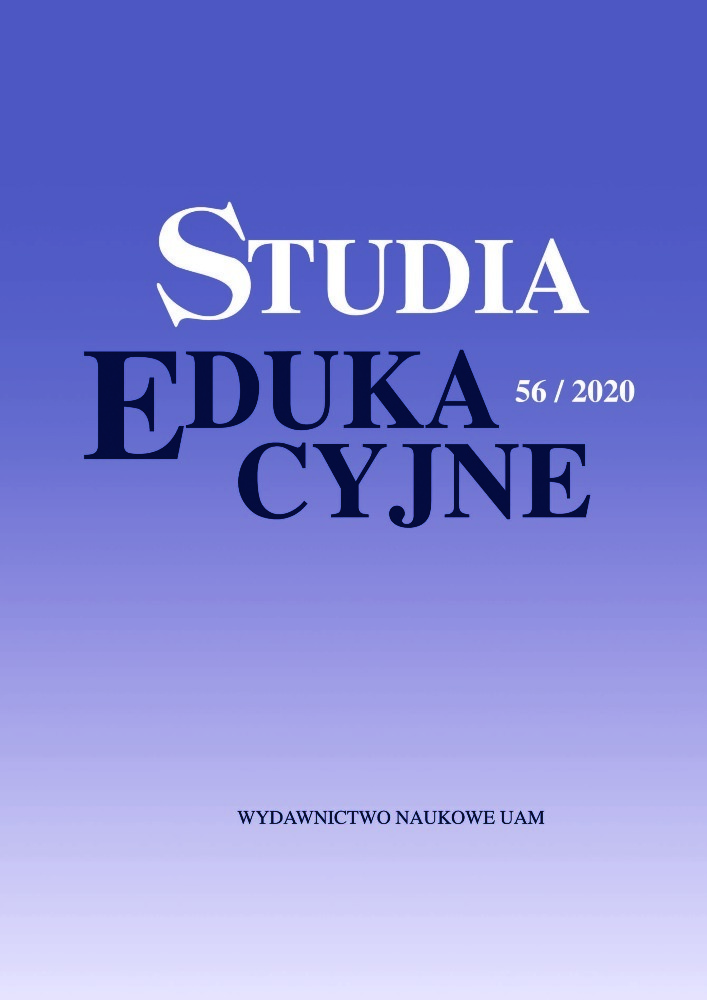Abstrakt
Wrona Daria, Cosplay – znaczenie fenomenu w relacjach uczestniczek [Cosplay – the Significance of the Phenomenon in Female Participants’ Accounts]. Studia Edukacyjne nr 56, 2020, Poznań 2020, pp. 385-399. Adam Mickiewicz University Press. ISSN 1233-6688. DOI: 10.14746/se.2020.56.21
Cosplay is a poorly understood phenomenon related to popular culture. Currently, however, it is slowly attracting the interest of an increasing number of fields of science, such as sociology, psychology or pedagogy. The following article will present the theoretical foundations and research on the role of cosplay in the life of female cosplayers. Focusing on the subjects, I touched upon the issues of interpersonal interactions, interests and skills, social perception of cosplay, problems related to the preparation of costumes, and the impact of cosplay on identity development.
Bibliografia
Babbie E., Badania społeczne w praktyce, Warszawa, 2004.
Brzezińska A., Psychologia rozwoju człowieka, Sopot, 2016.
Gerbasi K.C., Plante C.N., Reysen S., Roberts S.E., „Coming Out” as an Anime Fan: Cosplayers in the Anime Fandom, Fan Disclosure, and Well-Being, The Phoenix Papers, USA, 2018.
Hill N.L., Embodying Cosplay: Fandom Communities in the USA, Georgia State University, 2017. http://www.cosplanner.net/#, hasło cosplanner, [dostęp: 05.05.2020].
Ito M., Okabe D., Tsuji I., Fandom Unbound: Otaku Culture in a Connected World, New Haven – London 2012.
Jakubowski W., Pedagogika kultury popularnej – teorie, metody i obszary badań, Kraków 2017.
Langsford C., Cosplay in Australia: (Re)creation and Creativity Assemblage and Negotiation in a Material and Performative Practice, Adelaide 2014.
Lotecki A., Cosplay Culture: The Development of Interactive and Living Art Throught Play, Toronto – Ontario 2012.
Pilch T., Bauman T., Zasady badań pedagogicznych Strategie ilościowe i jakościowe, Warszawa 2001.
Rahman O., „Lolita”: Imaginative Self and Elusive Consumption, [w:] Fashion Theory, The Journal of Dress Body & Culture, 2011.
Rahman O., „Cosplay”: Imaginative Self and Performing Identity, [w:] Fashione Theory, The Journal of Dress Body & Culture, 2012.
Winge T., Costuming the Imagination: Origins of Anime and Manga Cosplay, Mechademia, 2006, 1.
Wrona D., Cosplay a role-play [w:] Nauczyciel i uczeń w przestrzeni społecznej, red. A. Borzęcka, A. Twaróg-Kanus, R. Waluś, Kraków 2019.
Wrona D., Cosplay jako fenomen kulturowy. Konteksty pedagogiczne i społeczno-kulturowe (praca magisterska napisana pod kierunkiem Prof. dr hab. A. Gromkowskiej-Melosik), Uniwersytet im. Adama Mickiewicza, Poznań 2018.
Zarzecki L., Teoretyczne podstawy wychowania Teoria i praktyka w zarysie, Jelenia Góra 2012

